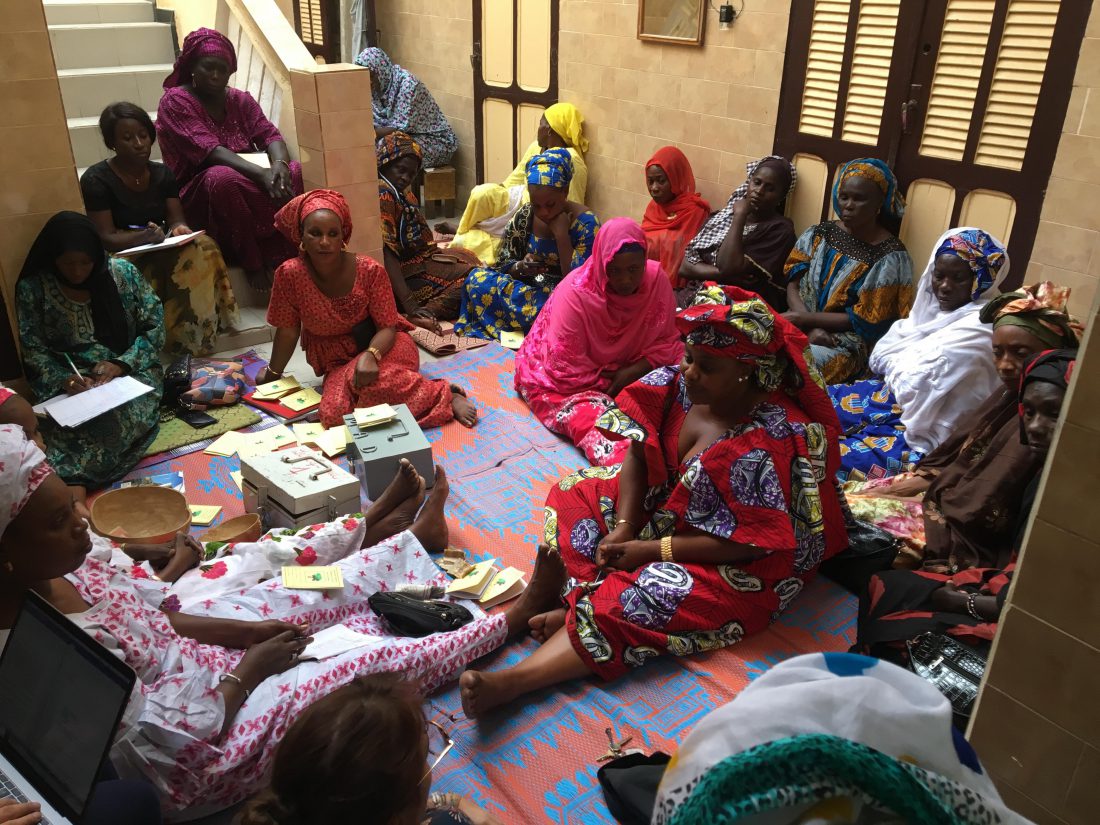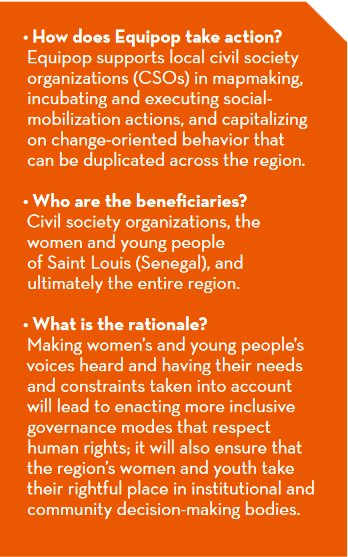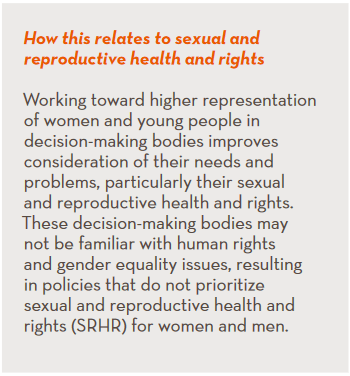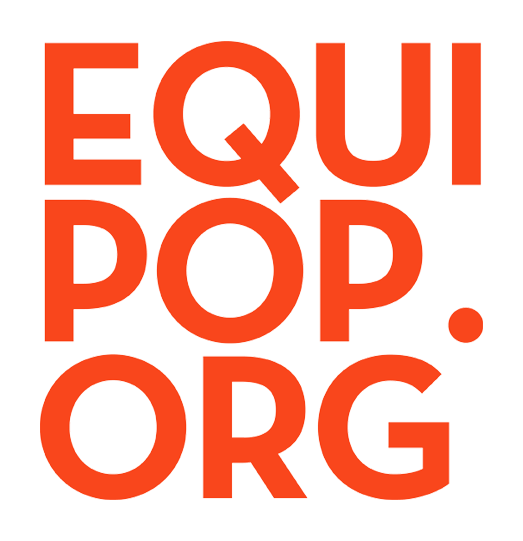
– Drumbeats: for a pro-woman, pro-youth participative and inclusive democracy
In 2018, Equipop expanded its operations to promote women’s and young people’s civic and political participation through a project called “Bruits de Tambours” (Drumbeats).
In West Africa, 45% of the population is under age 15.1 Women represent 51%-52% of the population. Relative to their share of the population, women and youth are under-represented in decision-making institutions and community-governing bodies. Public life is carried out with little or no input from women or young people; consequently their problems and specific realities are not taken into account. Despite some progress, this situation is caused in part by unequal or dif–ficult access to financial and other resources, which in turn means that women’s and young people’s voices are not heard, even though they play a primordial role in their families’ social and economic life.
“The authorities do not take our needs as women into account!”
Young woman speaking during a women’s group meeting, Saint Louis, Senegal
Following Senegal, which instituted a gender-parity law in 2010, many countries now use quota systems in order to improve women’s political representation.

However, the physi–cal presence of women in government does not always mean that they actively and effectively participate in governance. To the detriment of their professional and political engagement, women remain subject to cul–tural biases and still bear great responsibility for their family and household. Patriarchal norms, sex discrimination in the public sphere, and especially violence toward women deprive them of liberty and safe access to public spaces; these factors also limit wom–en’s participation in politics. Sometimes men even co-opt women, choosing those they know full well will not bother them. Such actions discredit women and give fuel to the detractors of gender parity who argue that women lack the skills needed to govern.
Today, we need all societies to understand that women can and should occupy seats in decision-making bodies and that women can and should empower themselves. Only gender quotas and parity will permit women to hold sway in government, enable young women to envisage careers as politicians and leaders, and allow young men and women to accept the fact that a woman’s place is also outside of the home.
If young people leave politics to old people, then older people will decide for them and make decisions that benefit old people!
A young man from Saint Louis, Senegal
Unlike gender parity, no law encourages youth participation in government. While political parties and community organizations have always had separate youth arms, such groups have primarily served to distance young peo-ple from decision-making bodies.
In Senegal, young people, relegated to youth issues, face defiance from their elders.

Often there are two sides to the story: older people think that the young are not interested in politics and governance, while young people feel alienated and not called to participate. They prefer to work within the community on economic and social problems, finding success outside formal governance bodies.
Youth often create their own modes of com–municating with and appealing to institutions, notably through art, culture, and social net–works. Sometimes they follow avoidance strategies, discouraging efforts to create a climate of mutual consideration with the authorities. In other cases, youth often show a genuine willingness to get involved, but are constantly rebuffed because of their inexpe–rience.
Like women, young people need to realize that they count and have power; they need to gear up in order to exercise their right to speak. Can we move toward effective gender and generational parity? That is Equipop’s aim with Drumbeats!
DruMbEatS

RAES, in partnership with Equipop, ONG 3D, and the Siggil Jigéen Network, leads the Drumbeats Project, a social and community-outreach campaign. Designed to inspire stronger, more democratic governance in Senegal and West Africa, it promotes the notion that a participative and inclusive democracy can and should include women and youth. The project revolves around five components: a TV series, a radio show and related content to prompt social mobiliza–tion, community action to put more-inclusive governance modes into practice, and a moni-toring and evaluation programme to share lessons learned.
(1) World Population Dashboard, UNFPA : www.unfpa.org/data/world-population-dashboard


